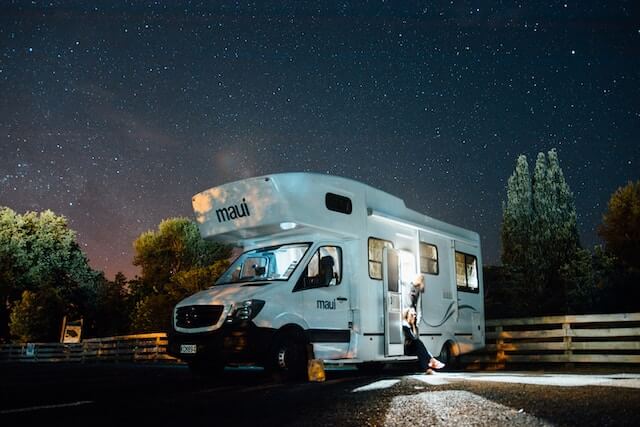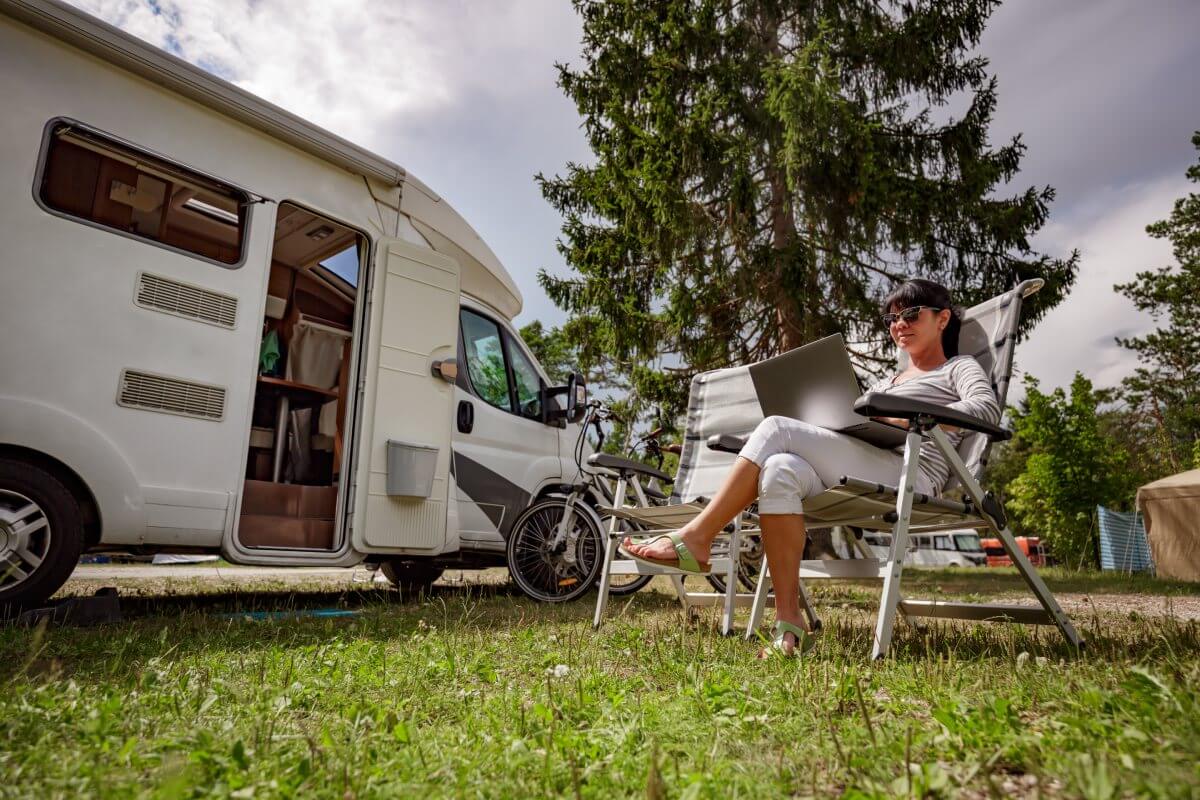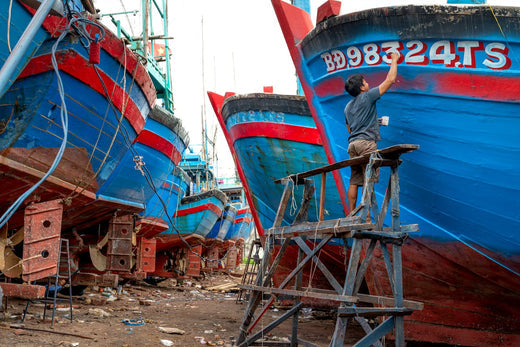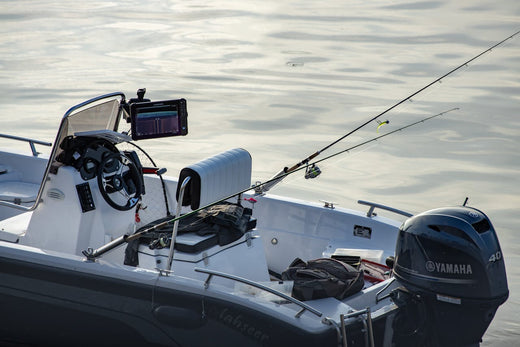Your Cart is Empty
ORDERS OVER $99 UNLOCK FREE* SHIPPING
Menu
-
- Home
- Archery
- Automotive/RV
- Boating
- Camping
- Fishing
- Hunting
- Outdoor
- Shooting
- Trailering
- Watersports
- Brands
-
- (208) 590-7477
- Login

ORDERS OVER $99 UNLOCK FREE* SHIPPING

Top 5 Safety Tips for RV Travel
5 min read
Table of Contents
- Perform Regular Vehicle Maintenance
- Master the Art of RV Driving
- Practice Before Hitting the Road
- Be Mindful of Height and Weight Restrictions
- Take Turns Slowly and Carefully
- Secure Your RV at Campsites
- Stay Alert and Prepared for Emergencies
- Follow Safety Guidelines Inside the RV
- Install and Maintain Smoke and Carbon Monoxide Detectors
- Properly Secure Loose Items
- Be Cautious with Cooking Appliances
- Conclusion
- FAQs
Are you planning a thrilling adventure with an RV? Exploring the open road and experiencing the freedom of RV travel can be an exhilarating experience. However, it's important to prioritize safety during your journey to ensure a smooth and enjoyable trip. Whether you're a seasoned RVer or a novice planning your first adventure, these top five safety tips for RV travel will help you stay secure on the road.
Perform Regular Vehicle Maintenance

To ensure a safe and trouble-free journey, it's crucial to perform regular maintenance on your RV. Here are a few maintenance tasks to prioritize:
Check the Tires
Regularly inspect your RV's tires for wear and tear, and ensure they are properly inflated. Maintain the recommended tire pressure to improve fuel efficiency and prevent blowouts.
Test the Brakes
Regularly check the braking system of your RV to ensure it's in optimal condition. Faulty brakes can lead to accidents, especially when towing additional vehicles.
Inspect the Lights
Make sure all lights, including headlights, taillights, and turn signals, are working correctly. Proper illumination is crucial for your safety and the safety of other drivers on the road.

Master the Art of RV Driving
Driving an RV requires a different skill set compared to driving a regular vehicle. Follow these tips to enhance your driving experience and ensure safety:
Practice Before Hitting the Road
If you're new to RV travel, take some time to practice driving your RV in a safe and open area. Get comfortable with the vehicle's size, weight, and handling characteristics before embarking on your journey.
Be Mindful of Height and Weight Restrictions
Pay attention to height and weight restrictions on roads, bridges, and tunnels. Overlooking these restrictions can lead to accidents or damage to your RV.
Take Turns Slowly and Carefully
RVs have a higher center of gravity, making them more prone to tipping during turns. Slow down and take turns with caution to maintain stability and prevent accidents.
Secure Your RV at Campsites
When you reach your destination and set up camp, it's essential to secure your RV properly. Consider the following measures to safeguard your belongings and ensure a safe environment:
Use Stabilizer Jacks
Deploy stabilizer jacks to minimize RV movement and maintain stability while parked. This helps prevent accidents and maintains a comfortable living space.
Lock Doors and Windows
Before leaving your RV or going to sleep, lock all doors and windows securely. This simple step can deter potential intruders and keep you and your belongings safe.
Store Valuables Out of Sight
Keep valuable items out of sight by closing curtains or blinds. This reduces the risk of theft and enhances your overall security at the campsite.

Stay Alert and Prepared for Emergencies
Unforeseen situations can arise during RV travel, so it's essential to stay alert and be prepared. Follow these guidelines to handle emergencies effectively:
Maintain an Emergency Kit
Create a well-stocked emergency kit that includes essential items like a first aid kit, flashlight, batteries, non-perishable food, and water. This kit will prove invaluable in case of unexpected situations.
Carry a Fire Extinguisher
RVs are susceptible to fire hazards, so always have a fire extinguisher on board. Regularly check its expiration date and ensure it's easily accessible in case of emergencies.
Have a Communication Plan
Establish a communication plan with your travel companions in case of separation or emergencies. Exchange contact details and determine a meeting point in case you get separated.
Follow Safety Guidelines Inside the RV
Safety shouldn't be limited to the road; it should extend inside your RV as well. Follow these guidelines to ensure a secure living environment:
Install and Maintain Smoke and Carbon Monoxide Detectors
Equipping your RV with smoke and carbon monoxide detectors is essential for early detection of potential hazards. Regularly test and replace the batteries to keep them in working order.
Properly Secure Loose Items
While driving, secure loose items inside the RV to prevent them from becoming projectiles during sudden stops or accidents. Store them safely or use appropriate restraints.
Be Cautious with Cooking Appliances
Exercise caution when using cooking appliances inside the RV. Ensure proper ventilation and never leave them unattended to minimize the risk of fires or gas leaks.
RV travel can be a fantastic experience filled with unforgettable memories. By following these top five safety tips, you can enjoy a worry-free journey, knowing that you've taken necessary precautions. Stay safe, be prepared, and embark on your RV adventure with confidence!
Conclusion
Safety should always be a top priority when embarking on an RV travel adventure. By performing regular vehicle maintenance, mastering RV driving techniques, securing your RV at campsites, staying alert and prepared for emergencies, and following safety guidelines inside the RV, you can ensure a safe and enjoyable trip. Remember, taking the necessary safety measures will allow you to make the most of your RV travel experience.
FAQs
Q1: How often should I check my RV tires? A1: It is recommended to check your RV tires at least once a month and before each long trip.
Q2: Can I tow another vehicle with my RV? A2: Yes, you can tow another vehicle, but ensure that you are within the weight and towing capacity limits of your RV.
Q3: Are there specific regulations for RV camping in national parks? A3: Yes, each national park may have its own regulations regarding RV camping. Check the park's website or contact the park authorities for specific guidelines.
Q4: What type of fire extinguisher should I have in my RV? A4: It is recommended to have a multi-purpose fire extinguisher that can handle various types of fires, such as those caused by flammable liquids, electrical equipment, and ordinary combustibles.
Q5: Should I disconnect propane tanks when refueling my RV? A5: Yes, it is crucial to turn off the propane supply and any pilot lights when refueling your RV to prevent potential fire hazards.
Get ready for your RV adventure by implementing these safety tips, and enjoy the freedom and excitement that comes with exploring the open road.






